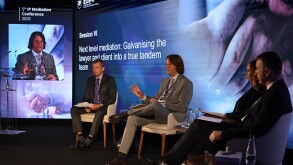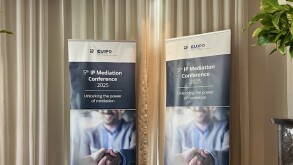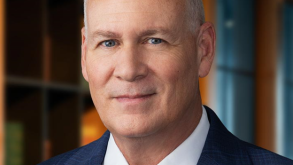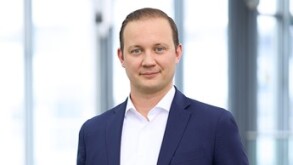How long have you been with the company and what is your background?
Sanjiv: I have been with the company for almost two years now. Before that I was in private practice in Chicago focusing on trademark and copyright law. Kelly: I have been at Dell since 2003 and on the trademark team since 2007. I started out providing support for the advertising and marketing groups and the consumer business. Prior to that I worked at Baker Botts in Austin, Texas.
What does your role entail on a daily basis?
Sanjiv: It’s never the same from one day to the next. Some of the things I do include clearance, enforcement, advocating specific issues that arise for the company’s business and managing vendors and suppliers. Kelly: It varies widely but on any given day or week I can be working on trademark usage issues, anticounterfeiting efforts, social media issues, licensing. Dell has recently been doing a lot of acquisitions, so I’ve been doing due diligence for those. We get a lot of one-off questions from the global brand groups and the marketing groups—can we do this? How do we do this? A lot of the questions are issues that impact the company globally.
What is the one piece of advice you have for outside IP counsel and the most important quality you look for in outside counsel?
Sanjiv: The number one quality we look for when we are working with outside counsel is responsiveness. When we don’t get it, it makes us question our relationship with outside counsel. When we are recruiting, we need a track record of success and the willingness to work within certain procedures and practices we have to follow. We have been fortunate that over the years we have selected some very high quality counsel to assist us, and there’s a lot of stability in that. Kelly: When we are looking to find a new firm, it’s advantageous (but not required) if the firm covers a geographical area of more than one country. It’s useful if a firm can cover, for example, several countres in southern Africa or a lot of the countries in western Europe. Like every company, over the last several years we have had budget pressures so the willingness to work with us on creative billing arrangements is important, or willingness to come up with alternatives in case there are reasons we might not want to pursue a certain strategy.
What are you looking forward to most at the INTA Annual Meeting this year? How long have you been attending the meeting?
Sanjiv: I have been going for at least 10 years. It’s always good to reconnect with people we work with and people we collaborate with. It’s a very collegial bar and I find that the relationships we make through INTA and other organizations can be very valuable in terms of getting our work done. Kelly: This is my fifth or sixth year. I like seeing everyone on a personal level and discussing the legal matters they are working on.
How do trademarks fit into Dell’s overall IP strategy?
Sanjiv: Trademarks are a core part of what we do. We collaborate with colleagues on matters that touch on both of our areas of expertise. Counterfeiting, for example, can involve both patent and trademark issues.
How has the company’s brand strategy changed through the years, given the increasing importance of IP in the tech industry?
Kelly: We have definitely seen shifts in strategy while I have been here. Recently there’s been more trademark portfolio integration work and a little more emphasis on more descriptive names. As services and solutions get more technical, there is more of a need to have the name describe what is being offered. In some cases, it’s not that helpful to customers to have a unique name that doesn’t really mean anything to them. The value of DELL as a house name is the constant.
What changes to the trademark system would you most welcome?
Sanjiv: I think one of the biggest changes in trademark practice has been the ability to do more and more preliminary clearance online. I would like to see this trend continue. I would like to see publicly available databases become more robust. Every time I see more companies added to the database I get happy.
What is the single biggest challenge you face in protecting your particular brand?
Sanjiv: Budget and resources. We can always do more.
In which countries do you protect your marks?
Kelly: Obviously, DELL and many of our established big worldwide products and services names are registered around the world. For all the other things we have different levels of prioritization. We might prioritize based on launch markets, or where we see the most infringement problems, or whatever the company feels is an emerging market for a certain service, solution or product.
Do you use the Madrid System at all? What are the advantages/disadvantages of the System?
Sanjiv: We have used the Madrid System and will continue to use it in appropriate cases, but we are becoming a more service-oriented business. We are a fairly old company—25 or 26 years old, which is fairly ancient in the tech industry. That leads to us doing less prosecution work than you might expect for a company our size.
How large of a problem are domain name disputes for you? How do you police your domain names and brands online?
Sanjiv: It’s a chronic issue. There’s a very robust market for our products so it’s almost inevitable that there’s a fair amount of domain name abuse. We use the usual tools and we prioritize enforcement action based on the nature of what’s going on and how it might impact our business. We have very diligent people, including our CEO, looking out for potential issues and telling us when something comes on their radar. Kelly: A lot of times, our clients are the best resource for us to find out what’s going on out there in the world.
What impact do you expect the launch of new gTLDs to have on your business and how are you preparing?
Sanjiv: Dell is an applicant for gTLDs, so we are participating in the system. We are working with the service providers to determine the best strategy for monitoring infringement and cybersquatting in the new gTLD environment. We don’t have a clear idea of when the first allocations are going to be happening so a lot of our preparations are in flux because of that. But in the end I do anticipate that we will see more cybersquatting and abuse.









